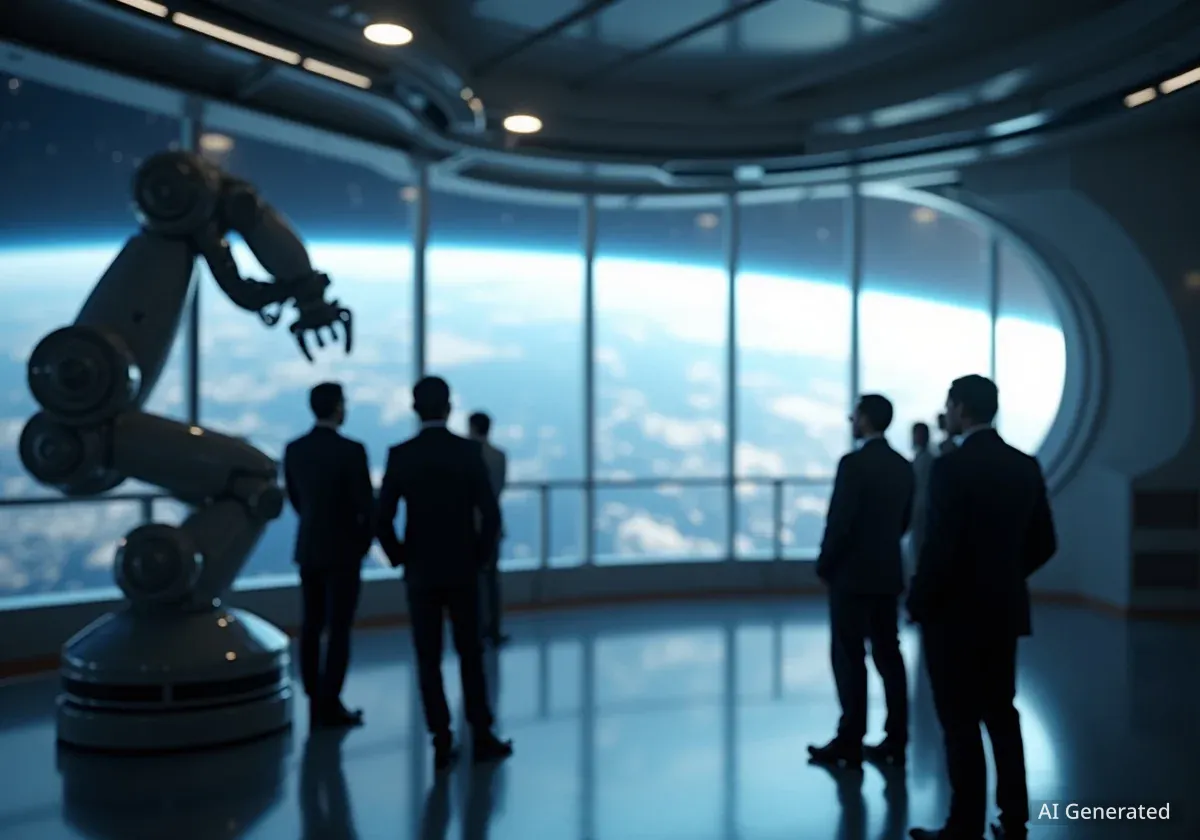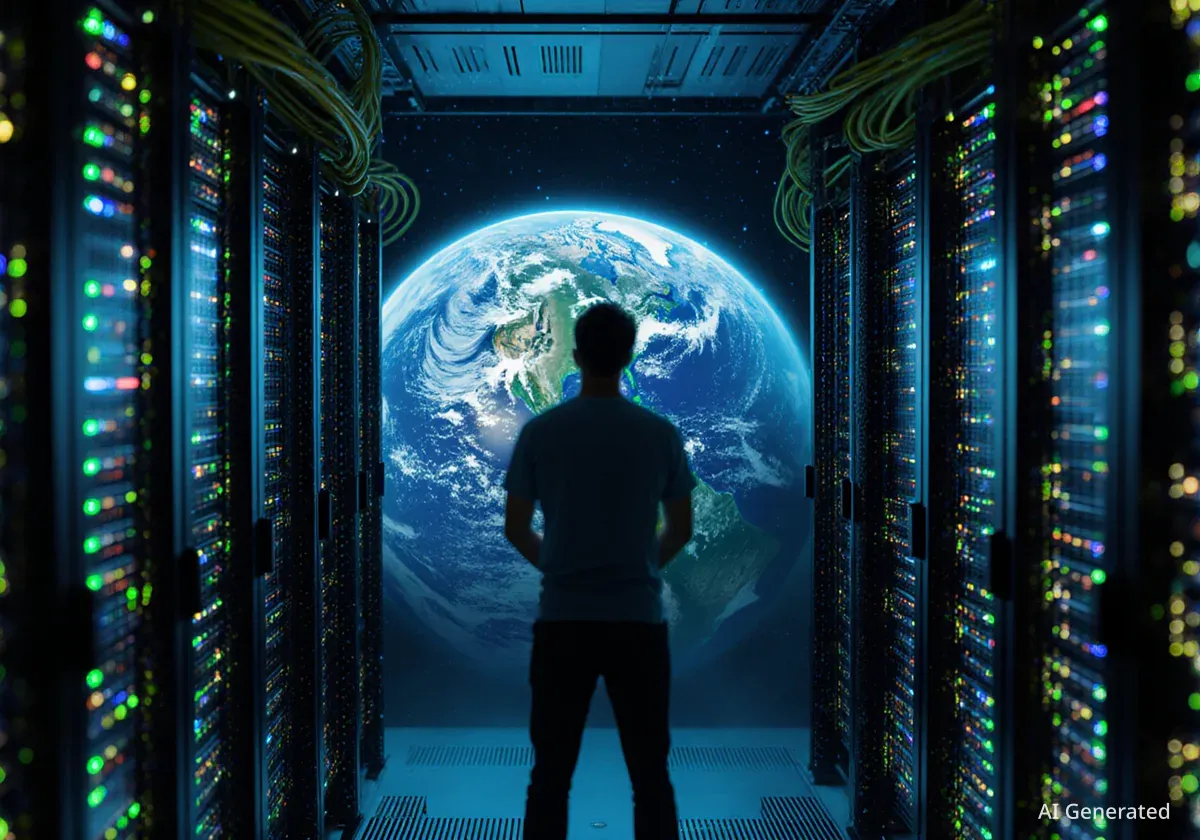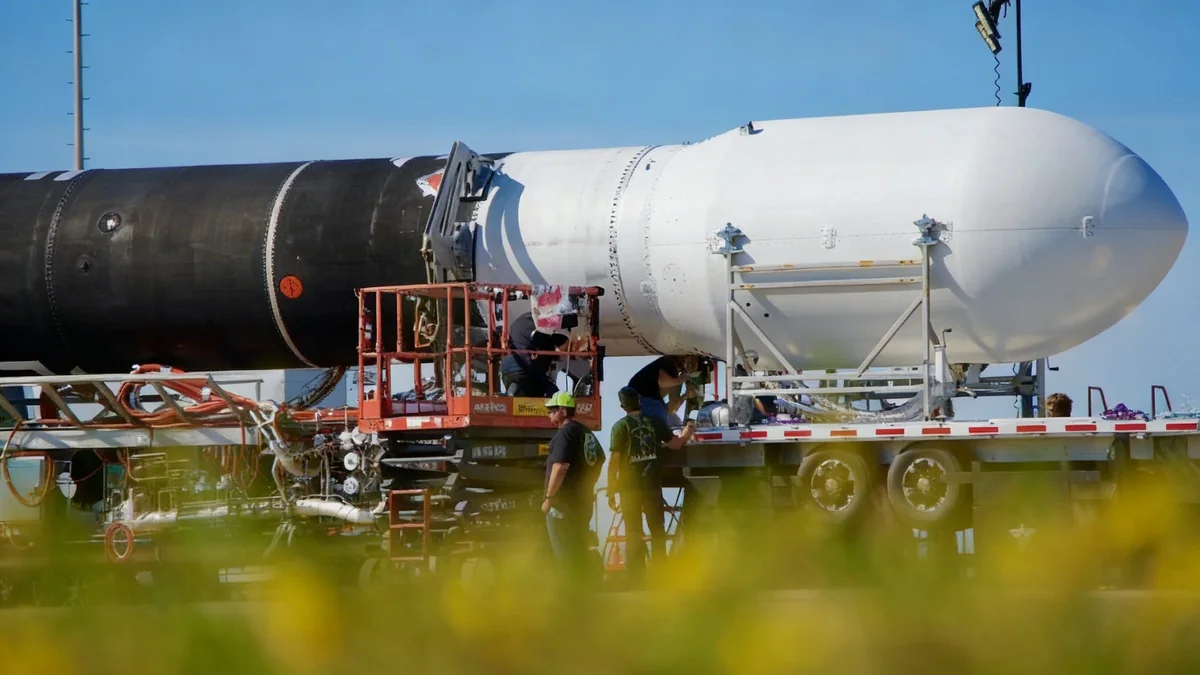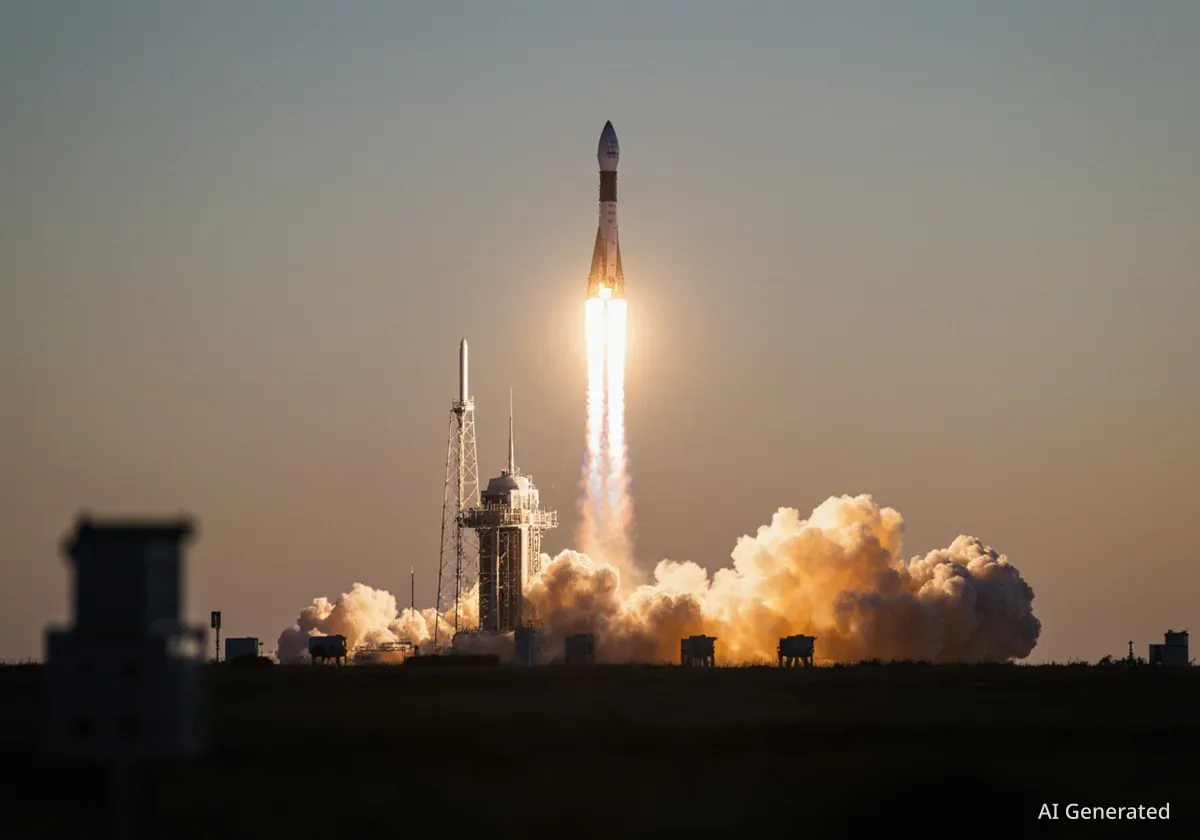Amazon and Blue Origin founder Jeff Bezos has projected a future where millions of people will be living in space within the next two decades. Speaking at Italian Tech Week 2025, Bezos outlined a vision where off-world living becomes a desirable choice, supported by a robotic workforce that handles tasks on planetary surfaces like the Moon.
Key Takeaways
- Jeff Bezos predicts millions of people will voluntarily live in space by the year 2045.
- He suggests robots will perform work on the Moon and other planets, as it is more cost-effective than sending humans.
- Other tech leaders like Elon Musk and Sam Altman have also made predictions about humanity's future in space.
- In contrast, Bill Gates has suggested that focus should remain on solving problems on Earth.
Bezos' Vision for an Off-World Future
During a discussion at Italian Tech Week 2025, Jeff Bezos shared his optimistic outlook on technological advancement and humanity's expansion into the solar system. He stated that the pace of development is accelerating rapidly.
“In the next kind of couple of decades, I believe there will be millions of people living in space,” Bezos said. He emphasized that this migration would not be driven by necessity but by choice, adding, “They’ll mostly be living there because they want to.”
Robots as the Future Workforce
A key component of this vision involves the use of advanced robotics for labor. Bezos explained that sending humans to perform tasks on other celestial bodies is not efficient. Instead, robots will handle the work, effectively becoming humanity's interplanetary commuters.
“If you need to do some work on the surface of the moon or anywhere else, we will be able to send robots to do that work, and that will be much more cost-effective than sending humans.”
This approach would allow human habitats in space to focus on living and research, while automated systems manage industrial or maintenance activities elsewhere. Bezos views technology, including artificial intelligence, as a tool for creating abundance for civilization, dismissing pessimistic narratives surrounding its development.
A History of Abundance
Bezos compared modern technological leaps to historical inventions like the plough, arguing they consistently enrich civilization. “Civilizational abundance comes from our inventions,” he stated. “These tools increase our abundance, and that pattern will continue.”
Shared Predictions Among Tech Leaders
Bezos is not the only influential figure in the technology sector with aspirations for an off-world future. Leaders at the forefront of AI and private space exploration have offered similar timelines and predictions.
Elon Musk's Mars Timeline
Elon Musk, the CEO of SpaceX, has long been a vocal proponent of making humanity a multi-planetary species. His company has worked closely with NASA on space exploration initiatives. Musk has set ambitious goals for reaching Mars.
- He believes humans could land on Mars as early as 2028.
- Unmanned SpaceX rockets are projected to begin flights to the planet as soon as next year.
Musk's work through SpaceX is central to developing the transportation infrastructure required for any large-scale off-world settlement.
Sam Altman on Future Careers
Sam Altman, CEO of OpenAI, envisions space creating entirely new job sectors. He has predicted that within a decade, recent graduates will be pursuing “some completely new, exciting, super well-paid” careers related to space. Altman expressed that the career paths of his generation will seem “boring” and “old” in comparison to the opportunities available to future generations.
Space Industry Growth
The global space economy is a rapidly growing sector. According to industry analyses, its value is projected to exceed $1 trillion within the next decade, driven by advancements in satellite technology, launch services, and emerging markets like space tourism and resource extraction.
A Contrasting Viewpoint on Priorities
While some billionaires look to the stars, others argue for a more Earth-centric focus. Microsoft co-founder Bill Gates has publicly questioned the immediate push for space colonization, suggesting that resources are better spent addressing terrestrial challenges.
In a previous interview, Gates was direct in his assessment of priorities. “Space? We have a lot to do here on Earth,” he commented, highlighting issues that require immediate attention on our home planet.
AI's Role on Earth
Despite his skepticism about space exploration as a priority, Gates is optimistic about the potential for artificial intelligence to improve life on Earth. He has suggested that AI could fundamentally reshape the nature of work.
Gates predicts a future where machines handle most labor, potentially leading to a 2-day workweek for humans. This would free people to pursue leisure, creativity, and other interests. “If you zoom out, the purpose of life is not just to do jobs,” he has stated, seeing a potential upside in technological automation.
The Broader Discussion on Humanity's Future
The differing perspectives of figures like Bezos, Musk, and Gates highlight a central debate about the future of humanity. One side sees technological progress as a pathway to expansion and new frontiers, creating opportunities beyond Earth.
The other perspective urges caution, emphasizing the importance of solving pressing global issues such as climate change, disease, and inequality before embarking on large-scale off-world endeavors. Both viewpoints, however, seem to agree on one thing: technology and automation will play a critical role in shaping the coming decades, whether that future unfolds on Earth, in orbit, or on another planet entirely.





